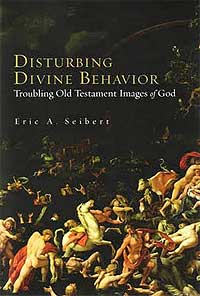As chair of the CSBS Ancient Historiography Seminar / Groupe de Travail sur l’Historiographie Ancienne, I am pleased to present the schedule for this year’s meeting.
The theme for the 2010 Ancient Historiography Seminar is “The Book of Chronicles and Early Second Temple Historiography.” We have an impressive collection of presenters this year, including Mark Boda, Louis Jonker, Isaac Kalimi, Gary Knoppers, John Wright, Ehud Ben Zvi, among others.
The schedule is as follows:
The Book of Chronicles and Early Second Temple Historiography (Session 1)
Sunday 30 May 2010 – 8:45-12:00 (CL 215)
Chair / Président: Patricia Kirkpatrick (McGill University)
- 8:45-9:15 – “Chronicles and Early Second Temple Historiography: State of the Question” by Tyler F. Williams (The King’s University College, Edmonton)
- 9:15-9:45 – “To be, or not to be (King Saul), that is the question: Conjuring up the old problem of the Saul Narrative in Chronicles” by Peter Sabo (University of Alberta)
- 9:45-10:15 – “Peering through the Cloud of Incense: Davidic Dynasty and Community in the Chronicler’s Perspective” by Mark J. Boda (McMaster Divinity College)
10:15-10:30 Break
- 10:30-11:00 – “Of Jebus, Jerusalem and Benjamin: The Chronicler’s Sondergut in 1 Chronicles 21 against the background of the late Persian Era in Yehud” by Louis Jonker (Stellenbosch University)
- 11:00-11:30 – “The Rise and Fall of King Solomon: Deuteronomistic versus Chronistic History” by Isaac Kalimi (East Carolina University)
- 11:30-12:00 – “Divine Retribution in Herodotus and the Chronicler” by John Wright (Point Loma Nazarene University)
12:00-13:30 Lunch Break
The Book of Chronicles and Early Second Temple Historiography (Session 2)
Sunday 30 May 2010 – 13:30-17:45 (CL 215)
Chair / Président: Tyler F. Williams (The King’s University College)
- 13:30-14:00 – “‘Yhwh will raise up for you a prophet like me’: Prophecy and Prophetic Succession in Chronicles” by Gary N. Knoppers (The Pennsylvania State University)
- 14:00-14:30 – “Capital Punishment: The Configuration of Ahaziah’s Last Hours in 2 Chronicles 22” by Keith Bodner (Atlantic Baptist University)
- 14:30-15:00 – “To Besiege or Not to Besiege: The Chronicler’s Presentation of the Invasion of Sennacherib” by Paul Evans (McMaster Divinity School)
15:00-15:15 Break
- 15:15-15:45 – “Implicit and Explicit Rhetoric in 2 Chronicles 35-36” by Mark Leuchter (Temple University Department of Religion)
- 15:45-16:15 – “Exile in Chronicles” by Ehud Ben Zvi (University of Alberta)
- 16:15-16:45 – “Historiography in Lament: A Case Study of Isaiah 63:7-64:11[12]” by Sonya Kostamo (University of Alberta)
- 16:45-17:15 – “Hearing Darius in Ezra: A Bakhtinian Analysis of the Voice of Darius in Ezra 6” by James Bowick (McMaster Divinity College)
- 17:15-17:45 – “Reflections on the Book of Chronicles and Early Second Temple Historiography” by Christine Mitchell (St. Andrew’s College)
The full schedule, including abstracts and download links for the papers, for this year’s session may be found at the seminar website. The Ancient Historiography Seminar meets as part of the annual meeting of the Canadian Society of Biblical Studies, held at Concordia University, Montréal, PQ, May 29-31, 2010.

 Disturbing Divine Behavior:
Disturbing Divine Behavior: The DVD of the first — and last — season of NBC’s biblical drama, Kings, was released yesterday (Michael Green, 2009;
The DVD of the first — and last — season of NBC’s biblical drama, Kings, was released yesterday (Michael Green, 2009;